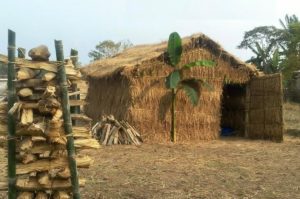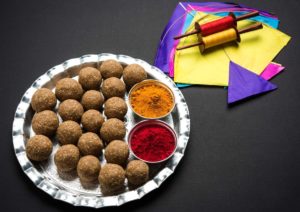CultureBreaking News
Makara Sankranti : One festival, many names… by Prosenjit Nath

Jan. 15: Makar Sankranti is a festival with many names that is celebrated throughout India with various socio-cultural customs and practices, which are symbolic of the phrase “unity in diversity” that is frequently used to describe Indian democracy. The diversity of its electorates is central to the beauty and vibrancy of Indian democracy–the rich and powerful, the powerful and powerless, the poor and insignificant, the lettered and unlettered, sheltered and destitute, male, female, and transgenders, believers and non-believers, religious and secular, young, middle-aged, old, and very old—all standing as equals to celebrate Indian democracy.
 Similarly, the festival of Makara Sankranti also has its own socio-cultural diversity that spans across India and is celebrated with many different names, each having its own geographical variants across the country. In Karnataka, the state to which I belong, we celebrate this festival as Makara Sankranti. This festival is celebrated as Lohri in North India by the Punjabi Hindus and Sikhs, in Sukarat in Central India, Magh Bihu in Assam, Pongal in Tamil Nadu, Ghughuti in Uttarakhand, Magh Saaj in Himachal, Makara Chaula in Odisha, Makar Sankranti in Maharashtra, Goa, Andhra Pradesh, Karnataka, Bengal, and Bihar, and as Uttarayana in Gujarat and Rajasthan. Makar Sankranti is also associated with kite flying, dances, bonfires, fairs, and mass pilgrimages to sacred rivers for holy bath.
Similarly, the festival of Makara Sankranti also has its own socio-cultural diversity that spans across India and is celebrated with many different names, each having its own geographical variants across the country. In Karnataka, the state to which I belong, we celebrate this festival as Makara Sankranti. This festival is celebrated as Lohri in North India by the Punjabi Hindus and Sikhs, in Sukarat in Central India, Magh Bihu in Assam, Pongal in Tamil Nadu, Ghughuti in Uttarakhand, Magh Saaj in Himachal, Makara Chaula in Odisha, Makar Sankranti in Maharashtra, Goa, Andhra Pradesh, Karnataka, Bengal, and Bihar, and as Uttarayana in Gujarat and Rajasthan. Makar Sankranti is also associated with kite flying, dances, bonfires, fairs, and mass pilgrimages to sacred rivers for holy bath.
 Makar Sankranti (Sankranti meaning “movement”) is the first major Hindu festival that falls in the Gregorian calendar, which is celebrated with much fervour across most parts of India under different names, as described above. This auspicious day- the harvest day- marks the transition of the Sun into the zodiac sign of Capricorn (Makara) and symbolises the arrival of the spring season.
Makar Sankranti (Sankranti meaning “movement”) is the first major Hindu festival that falls in the Gregorian calendar, which is celebrated with much fervour across most parts of India under different names, as described above. This auspicious day- the harvest day- marks the transition of the Sun into the zodiac sign of Capricorn (Makara) and symbolises the arrival of the spring season.
 At Makar Sankranti, it is also the time when, during normal circumstances, devotees throng to the holy river Ganges for their holy snan at “Har ki Pauri” in Haridwar, at the Triveni ghat in Rishikesh, and many other such places across India. Unfortunately, the raging third wave of the COVID pandemic, with its Omicron variant that is increasing day the day, has ruined the auspicious occasion by imposing restrictions in Haridwar, Rishikesh, and across the country.
At Makar Sankranti, it is also the time when, during normal circumstances, devotees throng to the holy river Ganges for their holy snan at “Har ki Pauri” in Haridwar, at the Triveni ghat in Rishikesh, and many other such places across India. Unfortunately, the raging third wave of the COVID pandemic, with its Omicron variant that is increasing day the day, has ruined the auspicious occasion by imposing restrictions in Haridwar, Rishikesh, and across the country.
 Interestingly, the Hindu customs and traditions offer more than one occasion to celebrate the new year, and Makara Sankranti is one such occasion, unlike the Gregorian calendar, which has only January 1st to celebrate the new year. And for those of you who may have missed out on your New Year’s resolutions, this is one occasion to recommit yourself to your new year resolution. I wish you all a very happy, safe, and healthy Makara Sankranti, and let us all hope that the transition of the Sun, the life-sustaining power, into the Makara Rashi will be the beginning of the end of the COVID pandemic, which has already claimed many lives and many more livelihoods.
Interestingly, the Hindu customs and traditions offer more than one occasion to celebrate the new year, and Makara Sankranti is one such occasion, unlike the Gregorian calendar, which has only January 1st to celebrate the new year. And for those of you who may have missed out on your New Year’s resolutions, this is one occasion to recommit yourself to your new year resolution. I wish you all a very happy, safe, and healthy Makara Sankranti, and let us all hope that the transition of the Sun, the life-sustaining power, into the Makara Rashi will be the beginning of the end of the COVID pandemic, which has already claimed many lives and many more livelihoods.





